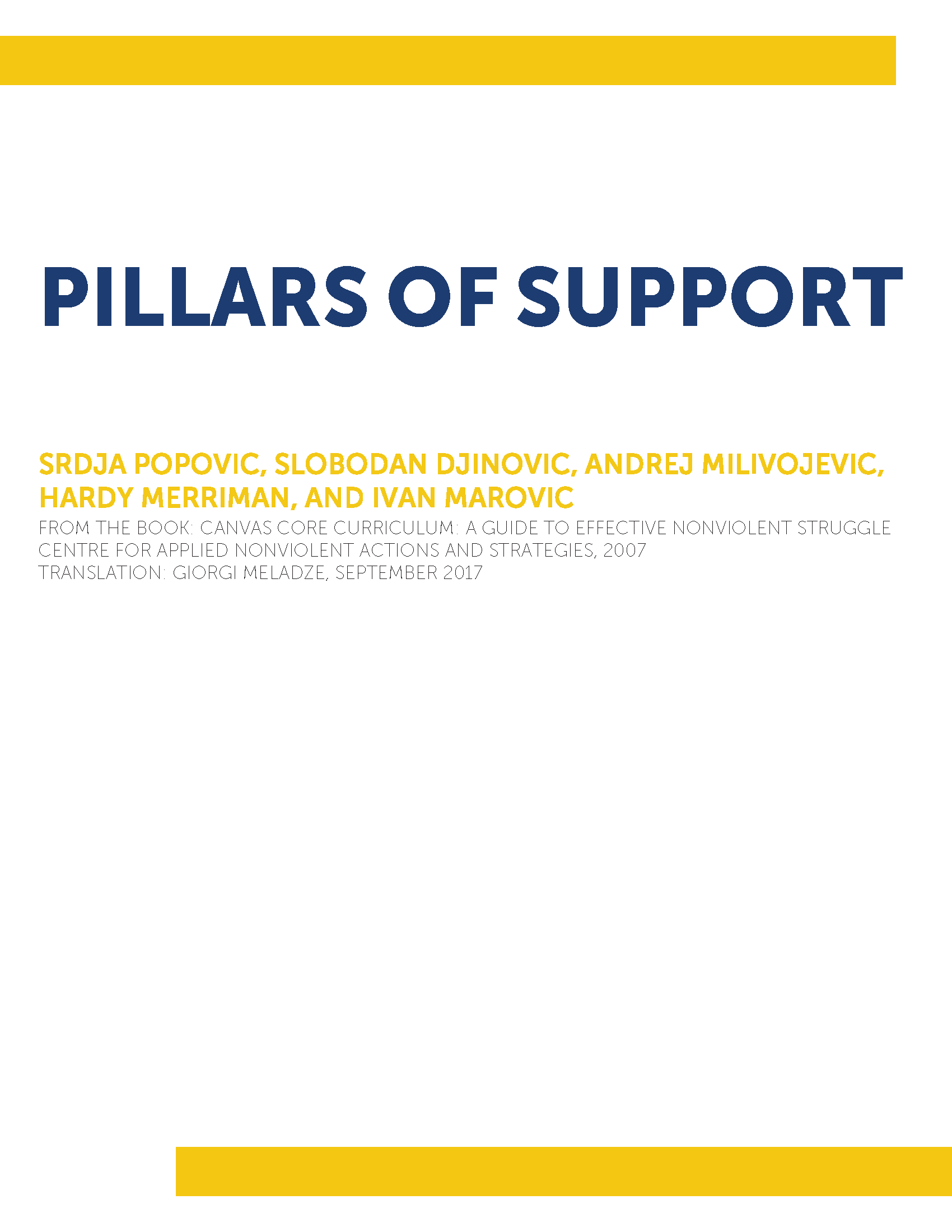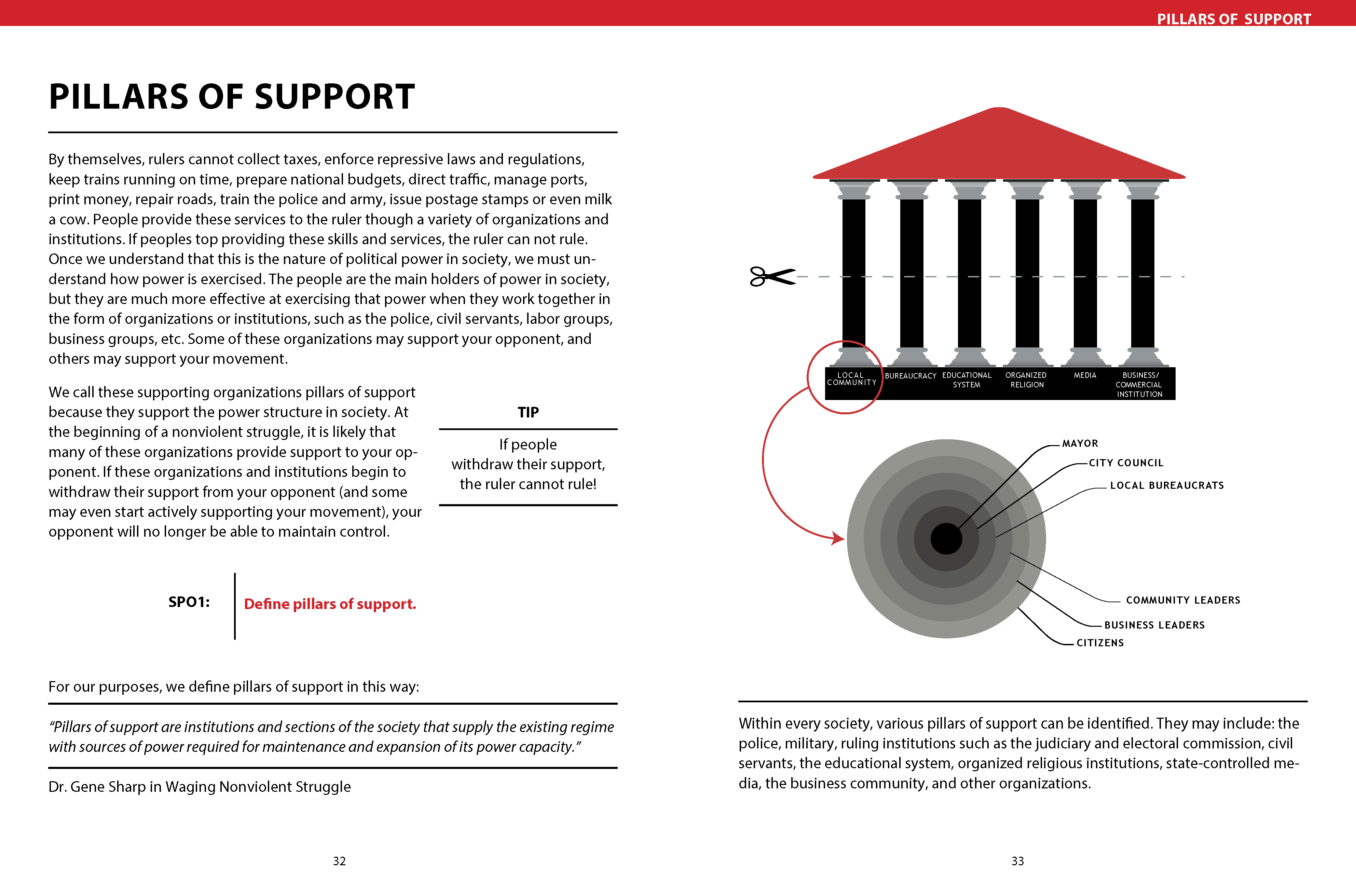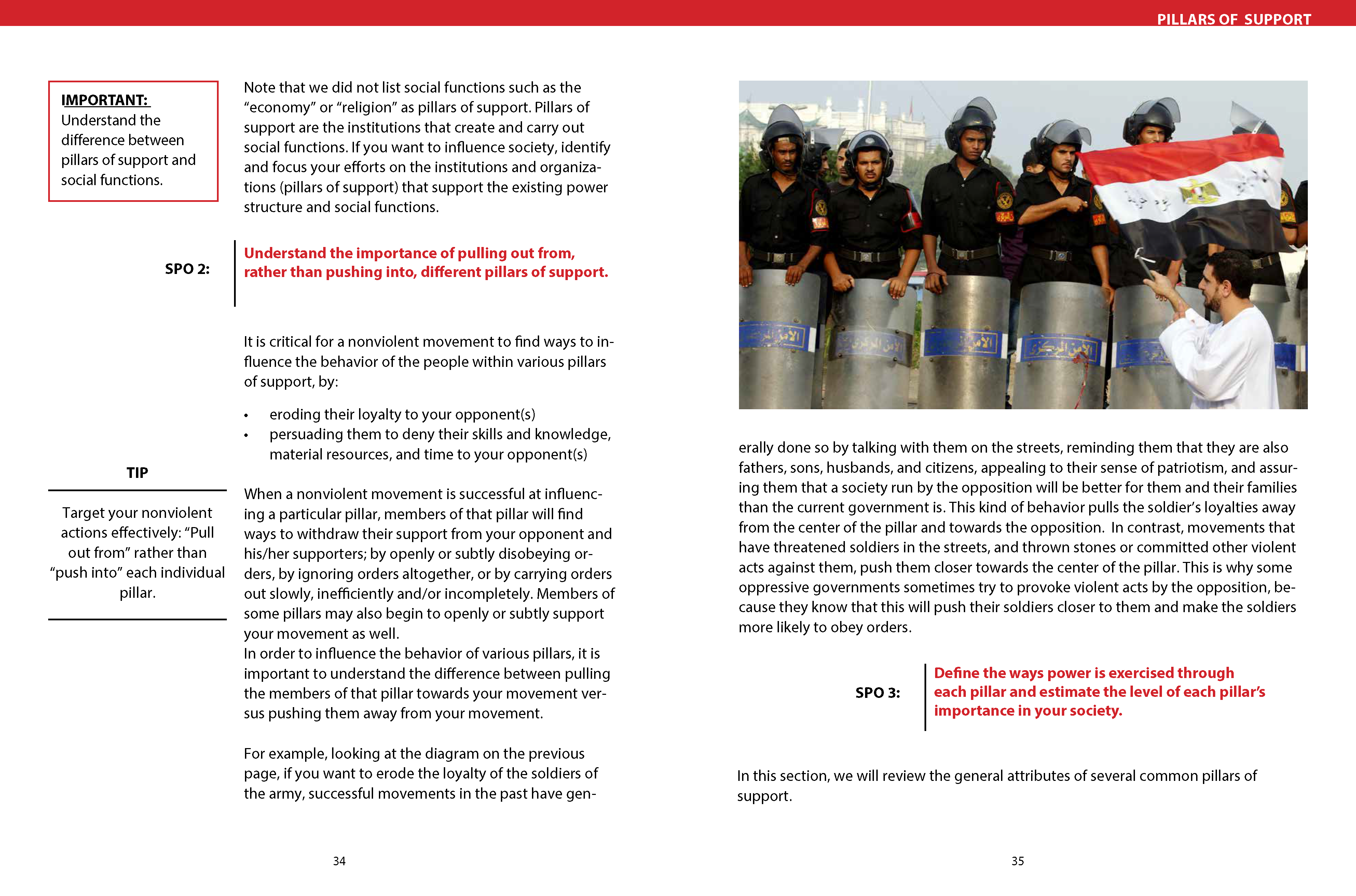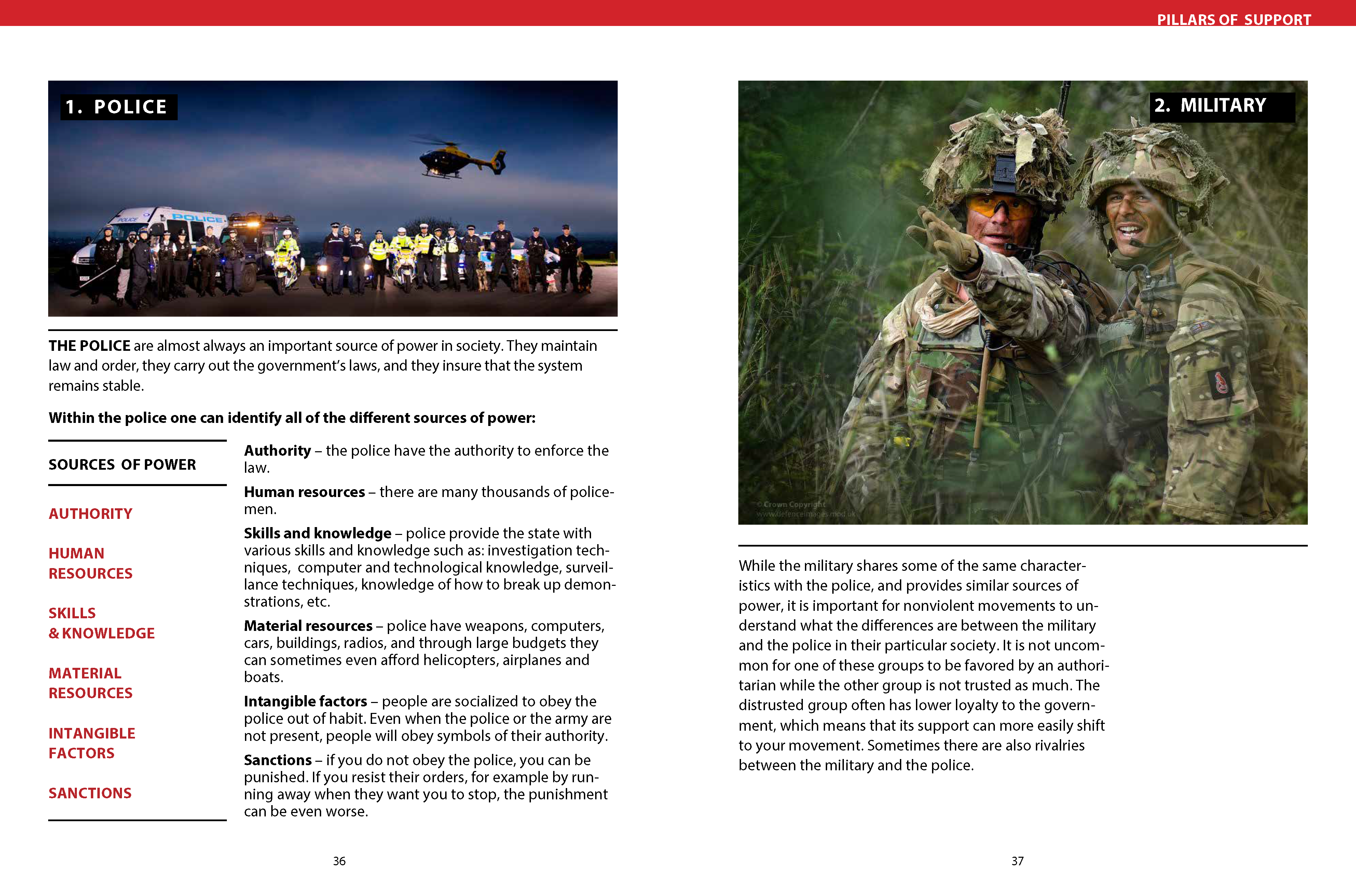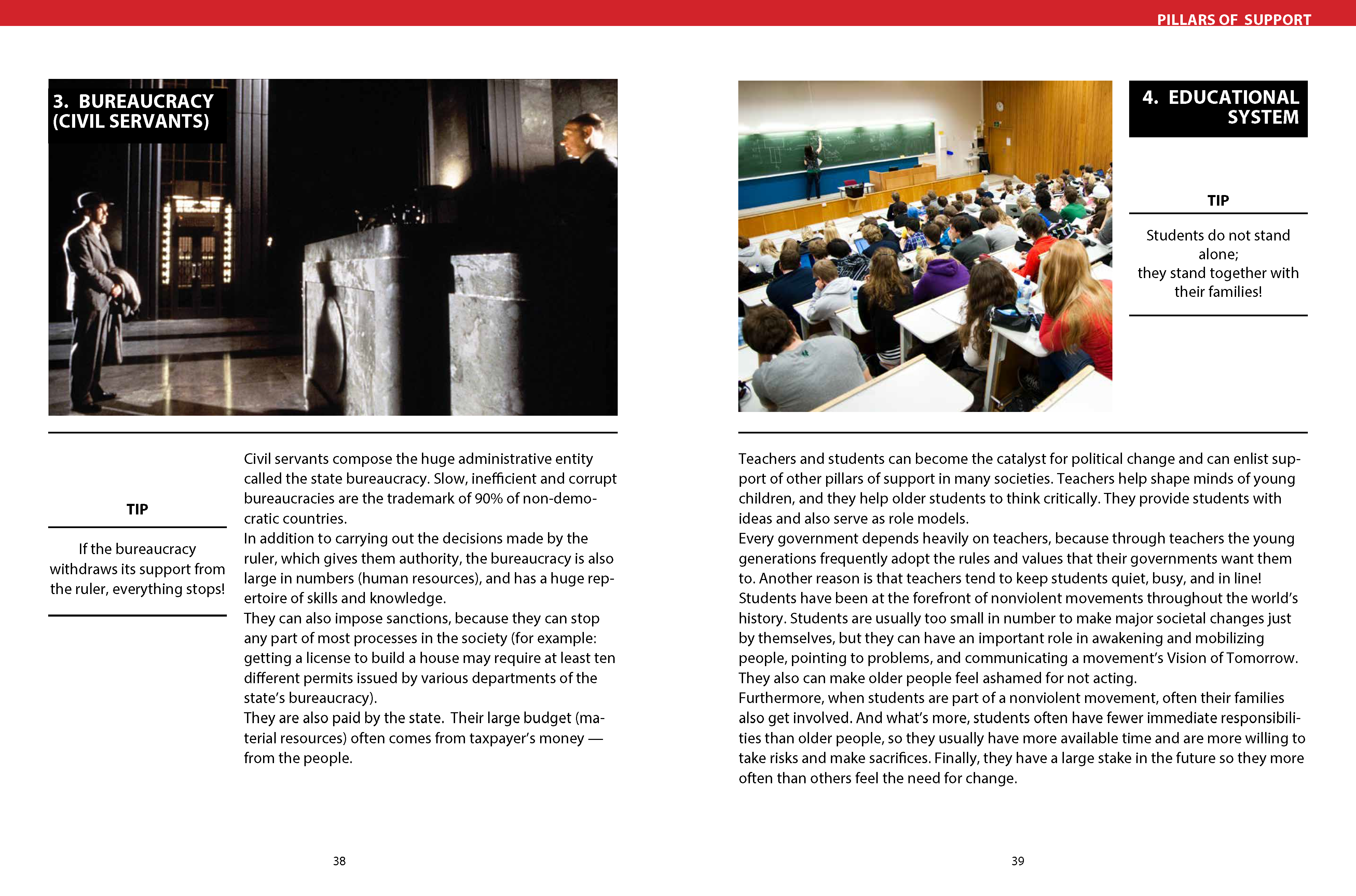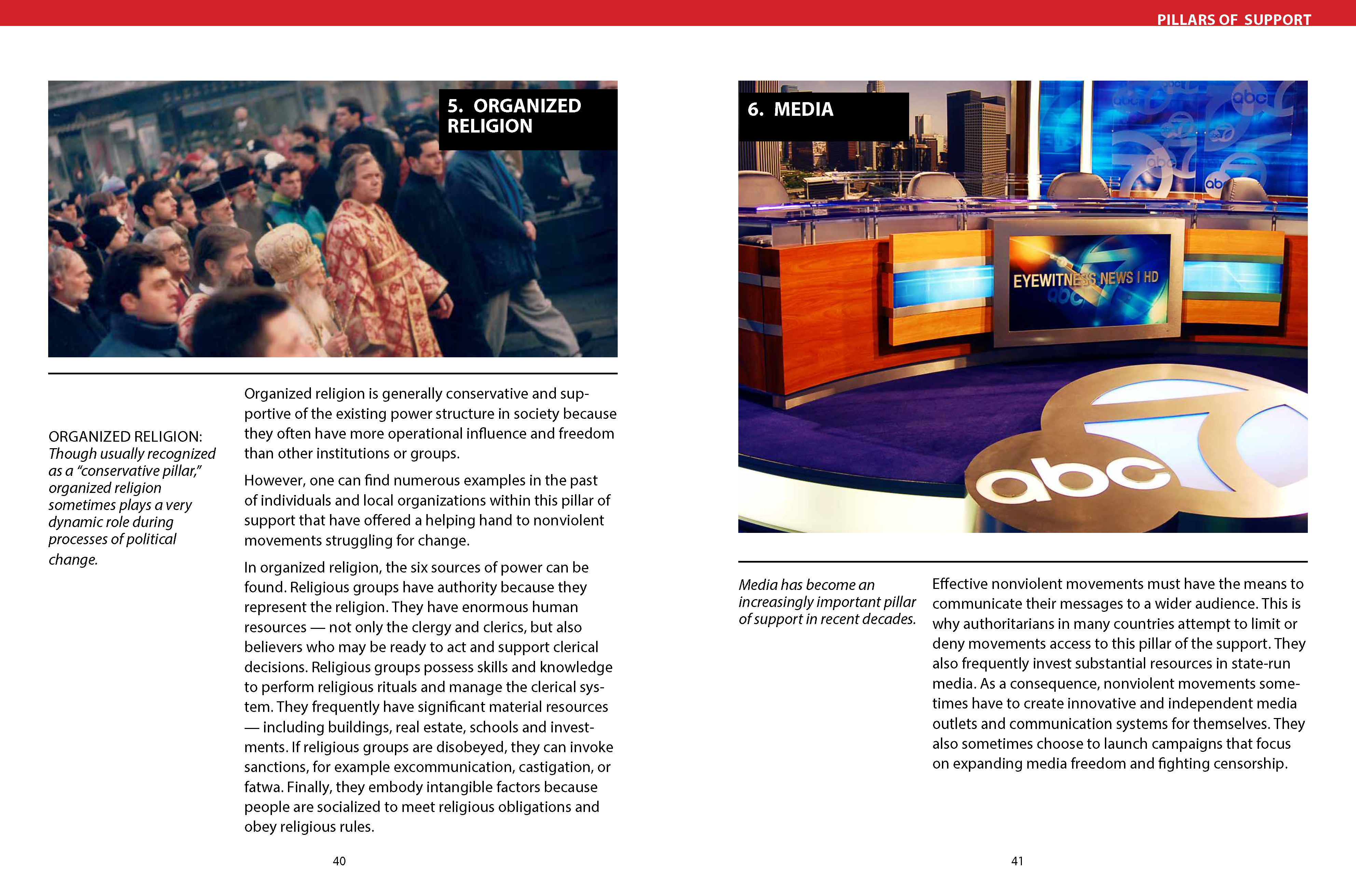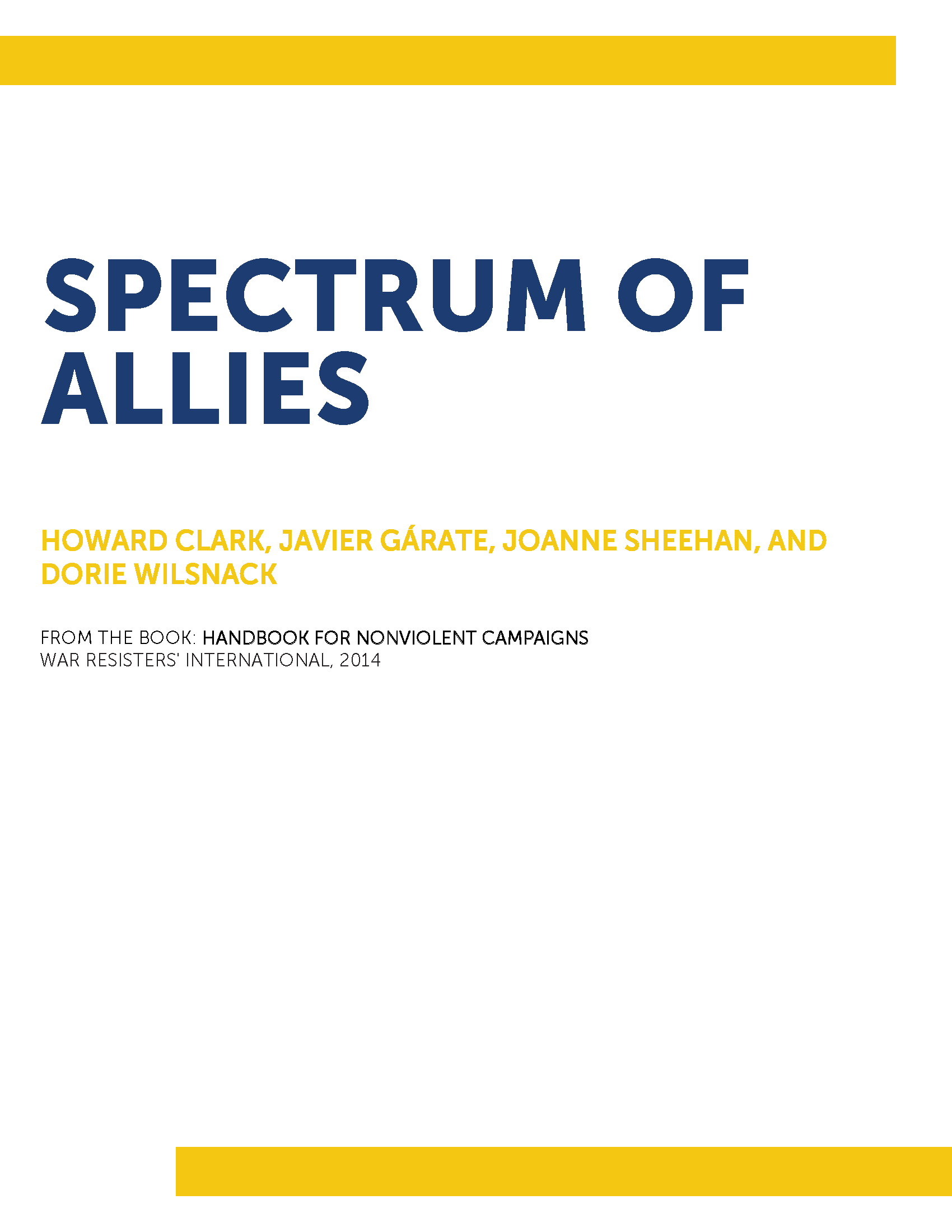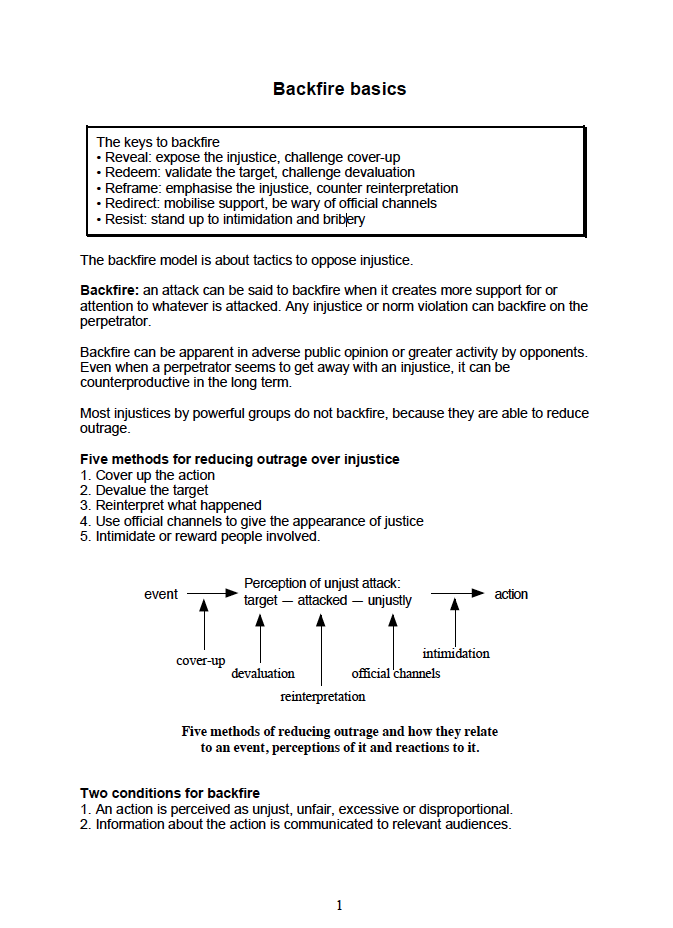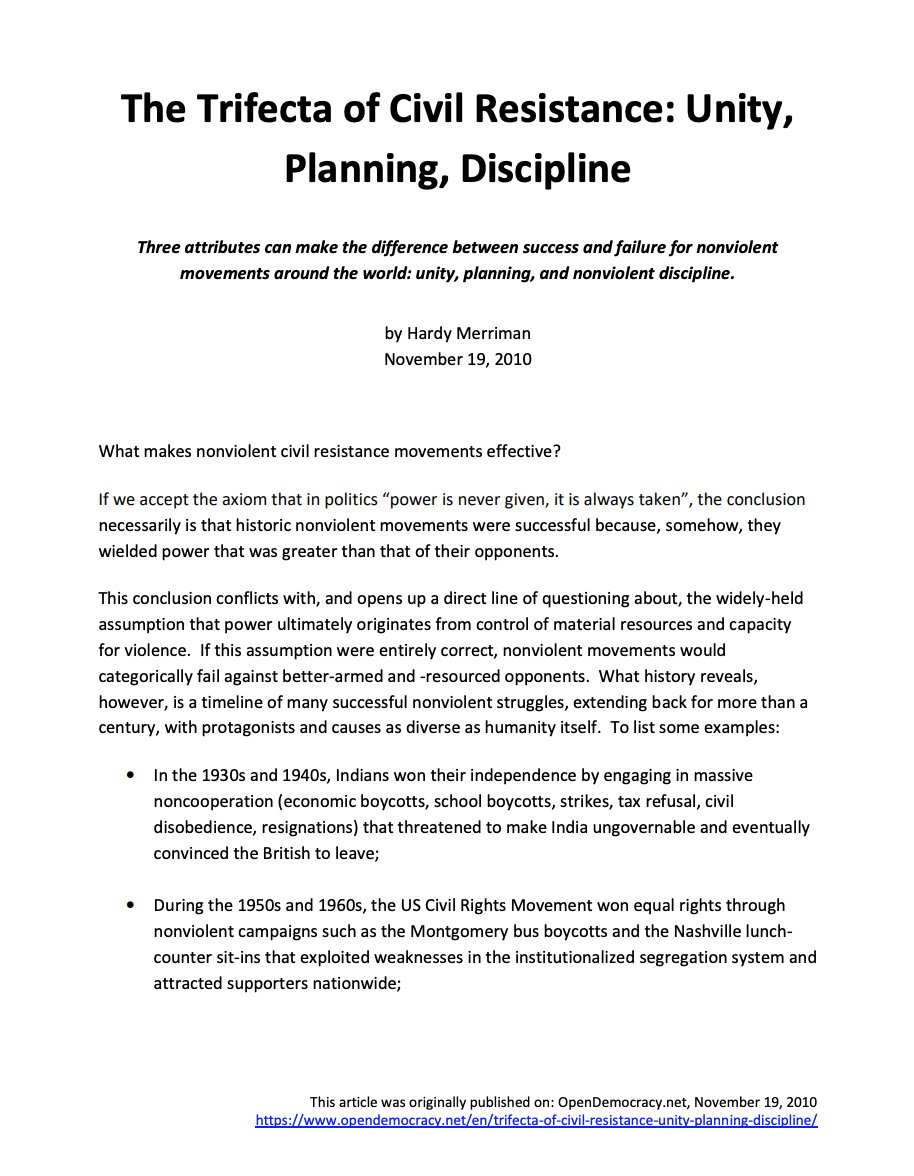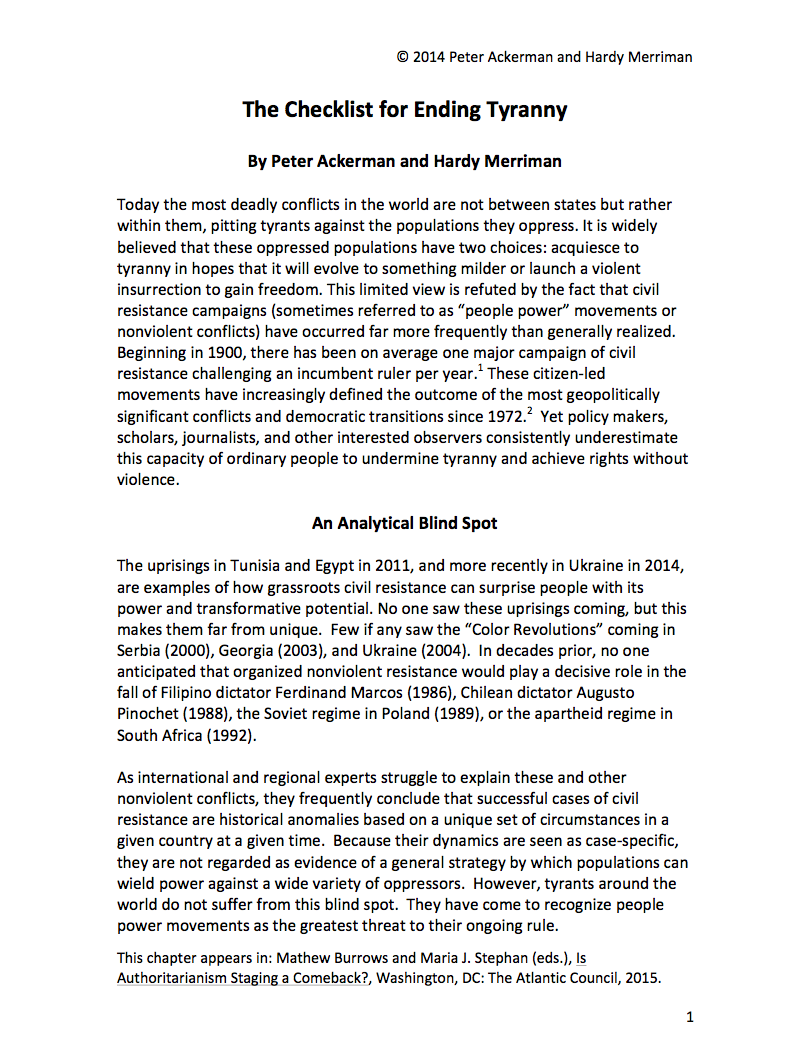Pillars of Support
By themselves, rulers cannot collect taxes, enforce repressive laws and regulations, keep trains running on time, prepare national budgets, direct traffic, manage ports, print money, repair roads, train the police and army, issue postage stamps or even milk a cow. People provide these services to the ruler though a variety of organizations and institutions. If peoples top providing these skills and services, the ruler can not rule. Once we understand that this is the nature of political power in society, we must understand how power is exercised. The people are the main holders of power in society, but they are much more effective at exercising that power when they work together in the form of organizations or institutions, such as the police, civil servants, labor groups, business groups, etc. Some of these organizations may support your opponent, and others may support your movement.
We call these supporting organizations pillars of support because they support the power structure in society. At the beginning of a nonviolent struggle, it is likely that many of these organizations provide support to your opponent. If these organizations and institutions begin to withdraw their support from your opponent (and some may even start actively supporting your movement), your opponent will no longer be able to maintain control.
Centre for Applied Nonviolent Action and Strategies, 2007
